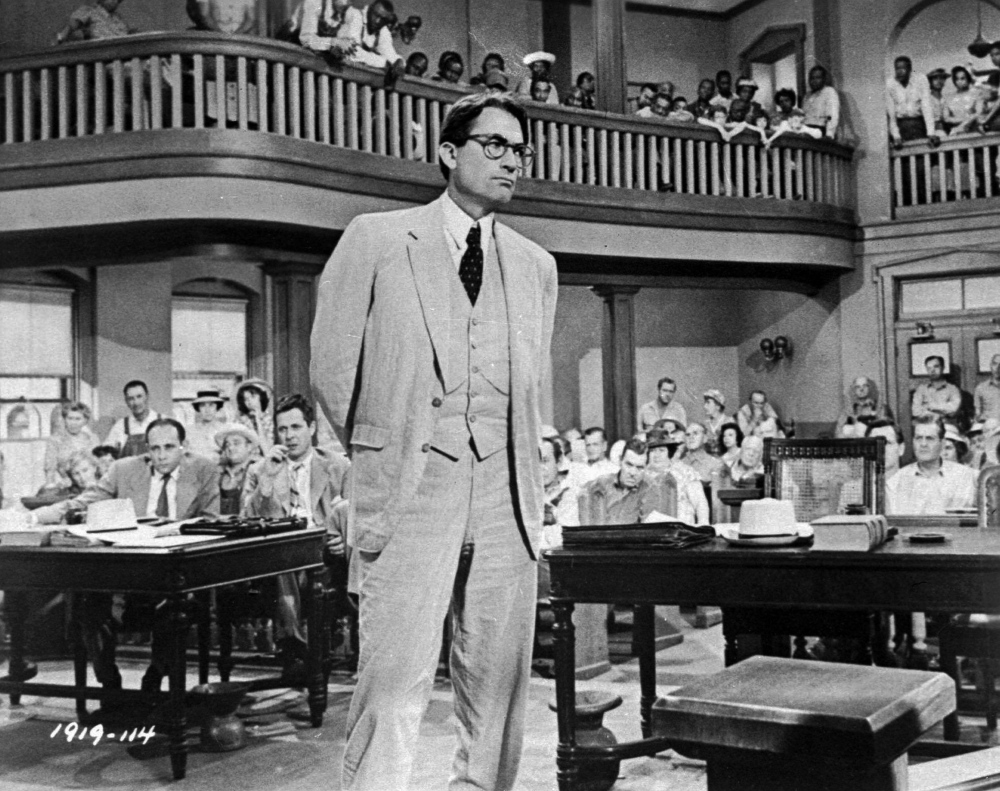CUMBERLAND — In Harper Lee’s recently released novel, “Go Set a Watchman,” the main character, lawyer Atticus Finch, stands for change.
However, the book’s genius is that it reveals a timely but soul-shattering truth that we all know: Legal verdicts and Supreme Court decisions, however righteous and just they may be, don’t move all people to accept or change their ways.
Clearly, some people’s views become even more entrenched when the courts act according to the larger public sentiment. It took weeks for South Carolina to lower the Confederate battle flag from the Statehouse grounds after a white gunman killed nine black people in a historic Charleston church.
Would a permanent change have come if the banner had been ripped down without cold, factual deliberations? To truly, deeply confront some attitudes, it requires a slow-moving, glacially paced hero.
We need Atticuses all the more today. Atticus’s character in “Watchman” was dealing with a very real social and political climate in the 1950s, while creating deep change from within.
With extreme patience few of us real mortals ever possess, Atticus – Lee’s young, naïve fictional hero in “To Kill a Mockingbird” – fails us in “Go Set a Watchman” only if we expected him to continue his angelic, flawless stance against all forms of bigotry and racism. That’s not realistic, and to assume so overlooks and denies his true heroism.
His evident, lifelong approach to countering the deep-seated racial attitudes in the hearts of so many within his community is the true victory. Society in the 1950s South was experiencing abrupt, tidal changes brought on by the NAACP, Supreme Court decisions and countermoves by racist extremists.
Atticus, too, feels the impact of swift change and responds to it anxiously, even fearfully. Yet he is the watchman. In that time and that place, he was the moderating voice.
It’s difficult to imagine by today’s standards, but he does maintain the principles we all so admired in the first novel. What we fail to appreciate is that he had to live in a way that would convert others to lasting, fundamental change.
Atticus is still our hero. In “Go Set a Watchman,” he continues his fight against “the hangover of hatred,” as Uncle Frank tells Jean Louise (the tomboy nicknamed “Scout” in “Mockingbird,” now grown up).
Like us, she too had fallen into the trap of revering her father to the point of blindness. She couldn’t see he was still a man of principle, facing a rising tide of prejudice with the advent of the civil rights movement.
He made a point of nurturing the perception that he was everyone’s friend in Maycomb. After he gained the trust of the community, bigots and all, they sought him out. When they are wrong, Atticus, and those like him, are able to effect deep, lasting changes of thought in society.
Sometimes it takes the broad sweep of an impassioned leader to set us all on the right course. We cannot know when or for how long such leaders will emerge. Meanwhile, we would do well to recognize that Atticus hasn’t lost his principles.
In “Mockingbird,” he stood up loud and clear for equal justice for all; he’s still there in “Watchman,” exacting lasting change in a way that works in his time and his setting. We need both kinds of leaders, in his era and ours.
If we’re lucky, there are Atticuses working now, from small towns in the South to communities in northern Maine, talking to their neighbors and friends about gay marriage and the Confederate flag. The Supreme Court and the vast public sentiment have swung in their favor.
Scout’s Uncle Frank reminds Jean Louise, and us, that the time when friends need you is when they are wrong, not when they are right. Listening to, giving air to, hate talk is a path to excising it and silencing it. Otherwise, it will go underground and harden into defiant anger.
When it is time for powerful social change, it doesn’t mean that a Martin Luther King will appear and change every heart and mind. We need to appreciate the Atticuses, patiently believing and actively working to move society forward.
Copy the Story LinkSend questions/comments to the editors.



Success. Please wait for the page to reload. If the page does not reload within 5 seconds, please refresh the page.
Enter your email and password to access comments.
Hi, to comment on stories you must . This profile is in addition to your subscription and website login.
Already have a commenting profile? .
Invalid username/password.
Please check your email to confirm and complete your registration.
Only subscribers are eligible to post comments. Please subscribe or login first for digital access. Here’s why.
Use the form below to reset your password. When you've submitted your account email, we will send an email with a reset code.